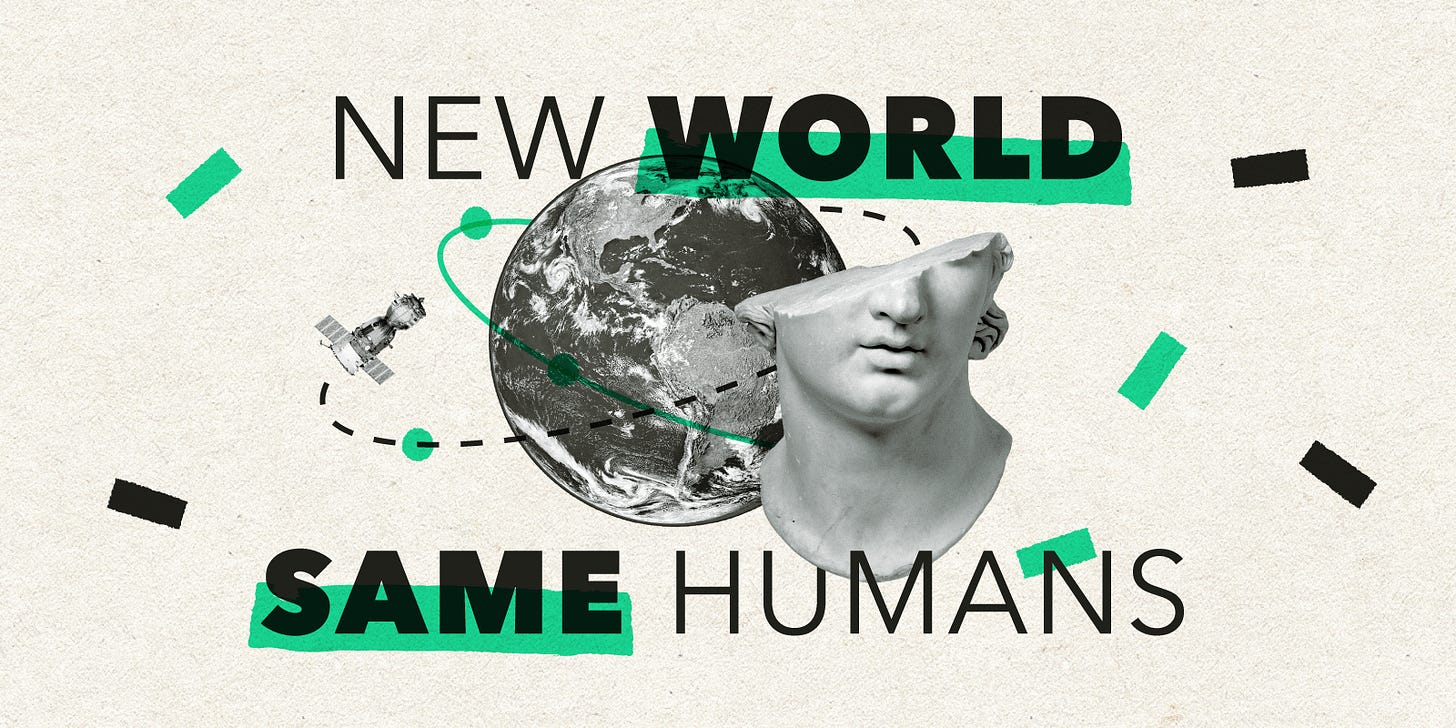
Welcome to the podcast version of New World Same Humans, a weekly newsletter on trends, technology, and society by David Mattin.
If you’re listening to this and you haven’t yet subscribed, then join 10,000+ curious souls on a journey to build a better shared future 🚀🔮
Under lockdown, life is atomised.
You used to sit in the office, sipping a coffee, working on your laptop and chatting to a colleague – all at once. Now you sit at your kitchen table and work alone. Later, you Zoom a colleague for 30 minutes. You make your own coffee. Back to the laptop.
For months now ordinary experiences have been broken down into their constituent parts and then served back to us. It’s been a novel, strange kind of defamiliarisation. But it also has deep consequences for the way our societies work, and for what lies ahead.
This week, I want to look at those consequences. In particular at the common theme that runs through many of them: our desire, and need, to learn.
Ready? Then hit play!
If you prefer to read this week’s instalment, go here for the the text version of New World Same Humans #28.
Links in this week’s instalment
The School of Life:
1. Business thinker and New York University marketing professor Scott Galloway on the unbundling of higher education.
2. Former a16z VC and technology thinker Li Jin on employment as a bundle.
3. Martin Recke, Corporate Editor at SinnerSchrader and founder of the NEXT Conference, on business events as bundles.
4. The social innovator Michael Young.
Bright lights, big city?
1. Last week’s essay on GPT-3, neural networks, and minds. This week, GPT-3 wrote its own essay on AIs and minds.
2. A new MIT report says cities are no longer escalators of opportunity. We talked about the end of the Great Age of the City in NWSH #12.
3. Matthew Taylor, CEO of the Royal Society of Arts, says it’s time for a new Reflexive Age in his annual RSA lecture.
4. People are having business meetings inside video games. We talked about the virtual experience economy in NWSH #15.
Forward, together
Thanks for listening this week.
Together, we’re forging a community for all those on a mission to build a better shared future. That means innovators, technologists, founders, strategists, product people, designers, marketers, policy makers, and more. It means you.

Learning and education will need to play a massive role in the new, improved New World Same Humans that is coming. I’m thinking hard about what that looks like, and pondering NWSH courses on foresight methodologies, better decision making, and more. There are two things you can do to help.
First, write and tell me what you want to learn from New World Same Humans. I’m also keen to hear what kinds of learning formats would work for you: text, podcast, hangout, something else? The more data I gather, the better this community can serve you. And I promise to write back!
Second, our community is only as strong as its members.So if you found today’s instalment useful, please forward this email to one person – a friend, family member or colleague – who’d also enjoy it. Or share New World Same Humans across one of your social networks, and let people know why you find this newsletter valuable. Just hit the share button!
The more interesting people join us on our journey, the better for us all.
That’s enough from me for this week. Until next Sunday, be well,
David.













Share this post